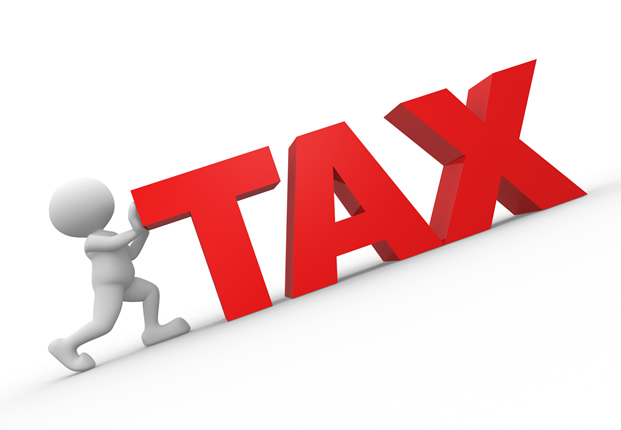BY NASIR AMINU
THE best way to predict the consequences of any government policy adoption is to read the proposition by the administrators of the administration to see what they expect to accomplish. To be precise, anyone who has read the proposed Tax Reform Bill saw the prediction as the reverse of what they said.
Since the recommendation to withdraw the Tax Reform Bill, many advocates of the bill have reached out to the stakeholders to re-sell their intentions. Their strategy includes scaremongering, whipping public anger, and regional divisions—mainly against the Northern states whose governors rejected the bill.
Taiwo Oyedele, Chairman of the Presidential Committee on Fiscal Policy and Tax Reform, has predicted that if the Supreme Court rules that VAT should be collected and administered by state governments, things will be chaotic. He said, “Nigeria will go back to 1986, businesses will suffer, and the economy will retrogress.” This is the scaremongering I’m talking about.
Oyedele avoided discussing their proposal to raise VAT from 7.5 to 10 per cent in 2025 and 12.5 per cent in 2026, which will hurt consumers. The increment is regressive and will hurt poor consumers struggling to cope with a 34 per cent inflation rate.
His intentions are evidently clear—the Tax Reform will focus on businesses instead of the actual taxpayers who paid the VAT. Given that manufacturing, communications, financial services and petroleum companies are predominantly located in the South, it means one thing—favouring businesses for them at the expense of the taxpayers of their products.
In fact, by taking this position, Mr Oyedele contradicts the verbal explanations of his fellow advocate of Tax Reform—Zach Adedeji, the FIRS Chairman. Mr Adedeji has been moving around to advocate increasing the share of states that contribute to the VAT is paramount, albeit only verbally.
Using a sneaky strategy, Adedeji went on to whip anger towards states collecting a large chunk of VAT. Lagos alone collected 42 per cent of the October distribution, Rivers collected 16 per cent, and Oyo got 5.2 per cent. This is based on the 20 per cent derivation allocated to each state. He verbally advocated for equitable redistribution, but the Tax Reform Bill did not reflect his words.
The proposed sharing formula increases the derivation for state governments from 20 per cent to 60 per cent based on derivation, 20 per cent based on population, and 20 per cent based on equality. This has been disagreed with, and they are unwilling to change it. If the bill passes, Lagos will receive much more than October’s VAT allocation; same goes for other states that host the head offices of major manufacturers, banks, telecoms, etc.
Using the new formula, Adedeji can use the October data and calibrate how much Lagos would have gotten. No doubt, this will take a big hit on his smooth-talking-divisive rhetoric.
It is quite surprising how these people speak with their flowery clichés that some states benefit from other states without referring to the data. Why are they not telling Nigerians how much each state contributes when VAT is collected at the point of sale
The FIRS chairman claims that companies that remit VAT have data on VAT collected from each state. So, why is it difficult for FIRS to disclose this data? They did it with VAT remittances from head offices. Some argue that it is difficult to know where the consumption is made. If that is the case, why are they designing tax reforms to reduce the share of states with high consumer bases?
A competent tax reform chairman should be thinking of how to design systems that allow states to collect their taxes with little consequence for taxpayers—the consumers. Are they “too lazy” to design a tax reform that favours the taxpayers (final consumers)? Why are they focusing on where the taxes were derived—the derivation principle? What is wrong with using the destination principle?
Of course, the answer is simple because this means all states will be responsible for their VAT collection. This will be the best form of Tax reform where the argument that one state depends on another will end.
If designing a better system is difficult, then we must acknowledge that all taxes belong to taxpayers. If all Nigerians are treated equally, the simplest way to distribute them is by population. Obviously, Lagos will get more than Ekiti, Imo and Bayelsa, but so will Kano, Borno and Niger. This will be unpopular as Lagos and their favoured states will lose out to the VAT allocation, which is 30 per cent of Nigeria’s revenue stream.
They prefer the misleading derivation principle as it only favours the already-favoured states where production is taking place, not where the actual taxpayers reside. Given the current hardship through T-Pain’s policies, it is only fair for people to get their fair share of taxes returned. Let us not forget that VAT is a regressive consumption tax that disadvantages those who spend all their money on consumption because they do not have enough to save or invest. This is a large majority of Nigerians.
We must now side with state governors for not folding their arms, as their states are being arm-twisted into giving up their fair share of taxpayers’ money. On the contrary, this does not depend on them. It depends on the National Assembly. However, the speaker and the Senate president have vowed to support everything Tinubu requests. There is little confidence in lawmakers’ ability to reject anything Tinubu sends them. Let’s hope they will disappoint on this occasion and reject it.
As for Nigerians, we must reject this reform bill, as we did with the withdrawn cybercrime levy. This will be a more scandalous swindle.
We all know the results of fuel subsidy removal, unifying the exchange rate, and other adopted policies. Whatever they adopted, the actual result has been precisely the opposite for all but a few favoured groups.


